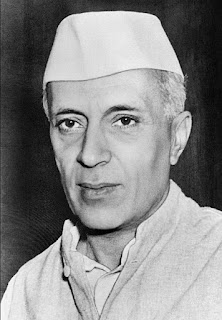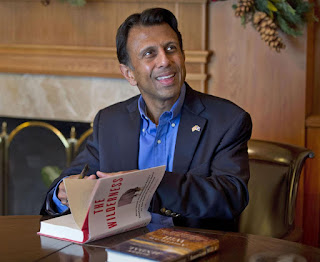Dr. Rajendra Prasad: Correspondence and Select Documents
Dr. Rajendra Prasad: Correspondence and Select Documents
~ Avatans Kumar
Today, as we celebrate the birth anniversary of Dr. Rajendra Prasad (or Rajen Babu), here is an interesting episode in the political life of the first President of the Republic of India.
~ Avatans Kumar
Today, as we celebrate the birth anniversary of Dr. Rajendra Prasad (or Rajen Babu), here is an interesting episode in the political life of the first President of the Republic of India.
The Constituent Assembly was tasked to frame the Constitution of the Republic of India. Dr. Rajendra Prasad was the President of the Assembly. Pandit Jawaharlal Nehru wanted to make C. Rajgopapalchari the interim President of the Republic of India. Rajaji, at that time, was serving as the Governor General of independent India.
Pandit Nehru wrote a letter to Rajen Babu about his ‘consultation’ with Vallabhbhai Patel regarding this issue. In his letter, Nehru indicates that Patel agrees with him. Panditji writes:
“I have discussed this matter with Vallabhbhai and we felt that the safest and the best course from a number of points of view was to allow present arrangements to continue, mutatis mutandis. That is that Rajaji might continue as President.” (Letter #175)
Rajen Babu does not take this letter from Pandit Nehru very kindly. He was really hurt to receive this letter. To verify whether Vallabhbhai Patel indeed was party to this point of view, Rajendra Prasad forwarded a copy of letter to Pandit Nehru to Sardar Patel with the following note:
“I received a letter from Jawaharlalji regarding the election of the interim President of the Republic. I am enclosing a copy of my reply to him which expresses my feeling.” (Letter #176)
Here is the full version of Dr. Rajendra Prasad’s response to Jawaharlal’s letter which is quite revealing. And as he mentions in his letter to Patel, expresses his feeling.
1 Queen Victoria Road
New Delhi
11 September 1949
My dear Jawaharlalji,
I received your letter regarding the election of the interim President of the Republic yesterday. I have never been a candidate for any post or honor and when I issued the statement that there could be no question of any contest between Rajaji and myself, I did so without any mental reservation. I should have thought that at least you and Vallabhbhai would accept that statement as genuine and would not create a contest between Rajaji and myself and consider it necessary to reject me. If I had come to know even in an indirect way that the matter was engaging your attention I would have gladly told you that there was no occasion for you to choose between us and that I would ask all who were interesting themselves in this election to whole-heartedly support Rajaji. It would not then have been necessary for you to give me any reasons for your decision and it would have been my business to convince those who thought otherwise that the right course was to elect Rajaji unanimously. It would have given me a real joy and satisfaction to do so. But this meant that I enjoyed your confidence, which I feel I had no right or business to expect. It would have required at least in this matter your sharing your views with me. As it is, I am required to accept and act upon a decision which has been taken without even the courtesy of consultation, although it concerned me intimately as my name has been into it by you without my knowledge or authority. I am deprived of the chance of flattering myself with the thought that I have not been judged by you and rejected – and rejected too on your reasoning after condemnation and for reasons which cannot bear scrutiny.
You say that my election would involve change and rearrangement and that it would be almost a condemnation of Rajaji’s work. It is not clear why change and rearrangement in this respect should be avoided, when the whole Constitution under which we have so long worked is going to change, when the Assembly which has prepared the Constitution is under your advice going to be dissolved and re-elect and that when in a great part of the country there is no suitable electorate of the kind that once elected the preset Assembly. One would have thought that all this meant a much greater change and rearrangement than any involved in the election of person to the post of the President of the Republic created under the new constitution in the place of the Governor-General appointed by the King of England. There is no condemnation involved or implied if a man is not reappointed to a post or to one similar to that which he has held on the expiry of the term of his office in due course, unless he is keen on being reappointed and is rejected. I have no reason to think that Rajaji has been keen on being reappointed, but you know better. I wonder if it has struck you on this basis it will be a greater condemnation of his work, if somebody else is set up for the Presidentship at the end of the interim period. It should not surprise you if I feel that on the same reasoning by making me a candidate and then rejecting me you and Vallabhbhai have condemned me and all that I have stood for and done during the all these years in association with you. Perhaps it has been stupid of me to think that I have been one of your colleagues deserving your confidence.
You have closed your letter with the expression of hope that I agree with your decision and a suggestion that I should put forward Rajaji’s name. Freedom to agree implies freedom to disagree. No question of agreement arises when one is confronted with a decision which one is expected and required to carry out. Perhaps it will not be proper for me while I continue to be the President of the Constituent Assembly to nominate a candidate for election. But that does not present any insurmountable difficulty. I will resign the Presidentship as soon as the work of constitution-making which the Assembly has in hand at present is completed and before the time for nomination comes and make myself free to carry out the decision which you have taken.
Please excuse the length of this letter and the feeling that I cannot help entertaining that I deserved a more decent exit, particularly when I did not want an entry. I shall try to retain the same feeling towards you both, although now from a distance, and I hope I will give you no cause to think that such kindly feeling as you ever bestowed on me was misplaced.
Yours sincerely,
Rajendra Prasad
(Enclosure, letter #176)
Pandit Nehru got really shaken by Rajendra Prasad’s response. Sensing this may backfire since he lied about his consultations with Patel in his letter, he writes a quick but a lengthy response to Rajen Babu. In that, he writes on September 11 itself:
“… I decided to write you on my own behalf. I mentioned Vallabhbhai’s name in my letter because about the time you issued the statement to the Press, there had been some talk between us.” (Letter #177)
Rajen Babu forwards this letter to Patel as well.
Sardar Patel writes (on September 16) to Rajen Babu saying:
“As Jawaharlal has explained to you, there was no recent talk between him and me about this matter at all.” (Letter #179)
Additionally, the lion-hearted Sardar tries to cover up for Jawaharlal Nehru and makes up excuses on his behalf saying Nehru is “overworked”, and “busy”.
“In fact my heart goes out to him in sympathy in the great and utmost intolerable burden that he is carrying.” (Letter #179)
Jawaharlal Nehru, on his part, did apologize to Rajendra Prasad:
“I am deeply sorry that I should have hurt you in a way in any way…” (Letter #177)
Interestingly, when Rajen babu died, Chacha was the only leader of stature who gave Rajen
Sources: Dr. Rajendra Prasad: Correspondence and Select Documents, Volume Eleven, 4 January 1949 to 24 January 1950, Edited by Valmiki Chaudhary, Allied Publisher Picture credits: wikipedia.org
Interestingly, when Rajen babu died, Chacha was the only leader of stature who gave Rajen
babu’s funeral a miss. His pressing engagement at that time – he was being weighed in silver in Chandigarh. (राजेंद्रबाबूपत्रोंकेआइनेमें, Part I, by Tara Sinha).
Sources: Dr. Rajendra Prasad: Correspondence and Select Documents, Volume Eleven, 4 January 1949 to 24 January 1950, Edited by Valmiki Chaudhary, Allied Publisher Picture credits: wikipedia.org





Pappu ka pura khandan chor hai aur MODi ko chor bolta hai.. shame shame...
ReplyDeleteReading the letter pained me that a person of so high status stoops so low.
ReplyDeleteIt indicates his selfifhness, prurience of controlling the governance of country..shame